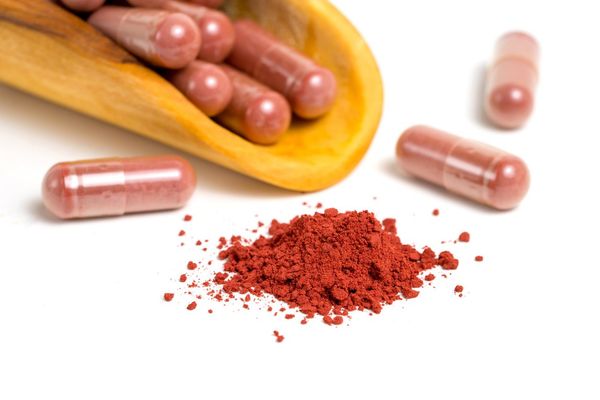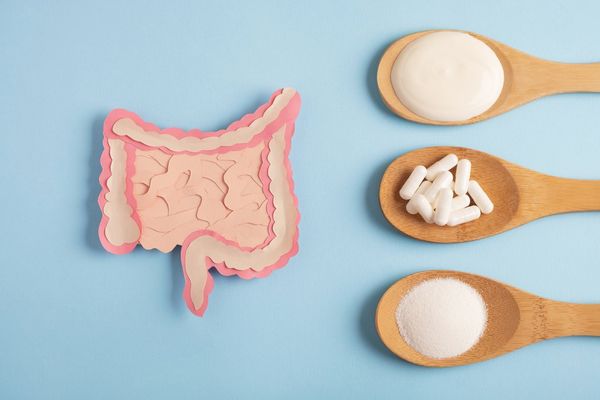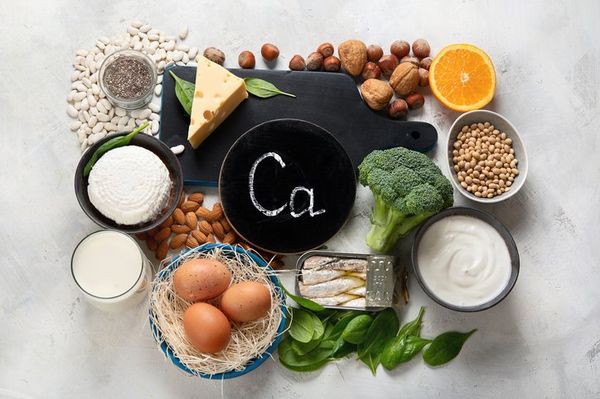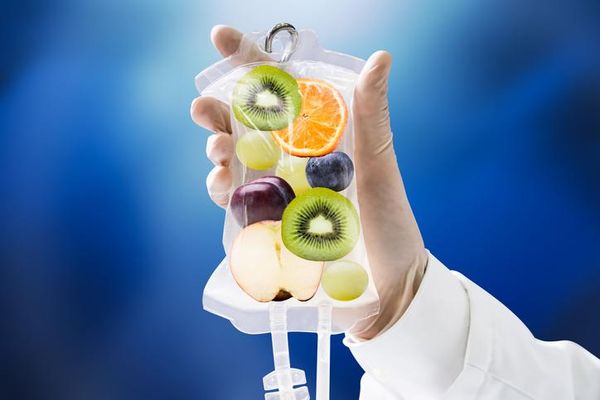Many of us strive for a healthy, well-balanced diet with plenty of fresh vegetables and fruits, whole grains, calcium and protein-packed dairy, plant-based fats and protein and fish. But just how likely are you to get the five—yes, five—servings of vegetables and two servings of fruit each day that are recommended by some nutrition experts? And don't forget to eat three daily servings of calcium-rich dairy and whole grains, plus fish twice a week.
Nutrition guidelines vary from organization to organization. For example, the American Heart Association currently suggests that everyone should try to eat four to five servings of vegetables daily AND four to five servings of fruit.
The 2015-2020 Dietary Guidelines for Americans from the U.S. Department of Health and Human Services take a broader approach, recommending a healthy eating pattern that includes:
- A variety of vegetables from all of the subgroups—dark green, red and orange, legumes (beans and peas), starchy and other
- Fruits, especially whole fruits
- Grains, at least half of which are whole grains
- Fat-free or low-fat dairy, including milk, yogurt, cheese, and/or fortified soy beverages
- A variety of protein foods, including seafood, lean meats and poultry, eggs, legumes (beans and peas), and nuts, seeds, and soy products
- Oils
But whatever guidelines you try to follow, it may not be easy to get all the foods you need every day. Although true vitamin deficiencies are thankfully quite rare in developed countries, there are a few vitamins and supplements that many people do need.
I'm all about food first, because the whole food matrix makes it easier to absorb the macro-nutrients, antioxidants and vitamins, but if you're not getting what's recommended, you might consider a vitamin or supplement.
Here are the five most forgotten:
1. Vitamin D
Now that many of us are wearing sunscreen and skipping the daily recommendation of three glasses of vitamin D–enriched milk, about 40 percent of Americans are vitamin D deficient. Vitamin D is the sunshine vitamin that becomes available from ultraviolet light exposure. It's naturally occurring in some fatty fish, such as salmon and mackerel. It's also found in fortified foods like milk and some orange juice brands and cereals.
Vitamin D helps keep our bones, hearts and even brains strong and healthy. It's also a powerful antioxidant. Pregnant women often need supplementation. Recommendations vary about how much people should have each day, but in general 800 IU to 2,000 IU is considered safe. Read more about The Important Vitamin You're Probably Lacking.
2. Fish oil with omega-3s
Unless you're eating a lot of fatty fish such as cod, salmon, mackerel, herring, oysters, sardines or caviar, chances are you would benefit from taking a fish oil supplement with omega-3 fatty acids. These are loaded with two important long-chain fatty acids:
- EPA – eicosapentaenoic acid
- DHA – docosahexaenoic acid
Omega-3s with DHA are recommended for pregnant women to help with the baby's brain and eye development. Omega-3s provide many other benefits including reducing inflammation, especially in our arteries and helping reduce the risk of cancer. They're also recommended to help reduce dry eyes and lubricate our joints. Look for a fish oil supplement that has no after -taste. Read more about Omega-3s: The Heart-Healthy Fats.
3. Probiotics
We are learning more each day about the amazing universe of bacteria that live within our gastrointestinal systems. Known as the microbiota, these hard-working microbes help control our digestive system, our metabolic rate, our immune systems and even our moods. While everyone's microbiota is as different as they are, there are some types, such as lactobacillus, that most people have. Keeping a healthy balance of lactobacilli and Bifidobacterium typically helps people avoid bloating, gas, diarrhea and constipation.
You can find naturally occurring probiotics in yogurt and kefir. Look on the labels to see that they say, "active cultures." If you need a supplement, you don't have to spend a fortune on a probiotic. Look for one with a high microbe count that will last up until expiration.
4. Zinc
This is a trace nutrient, and a little goes a long way. Zinc helps regulate our immune systems, helps prevent macular degeneration and can help with wound healing. Many people find that a zinc lozenge helps relieve symptoms and/or shorten duration of the common cold. In addition, zinc can boost sex-drive. Drinking too much alcohol will lower zinc levels.
Zinc is naturally found in shellfish, nuts and seeds, eggs, brown rice, oats, chicken, turkey and dairy products. If you don't regularly eat these foods and need a supplement, look for one that contains 12 mg or less of zinc per day.
5. Vitamin B12
With more people following plant-based and plant-exclusive diets, there are more people developing vitamin B12 deficiencies. In addition, the medications people take for an overproduction of stomach acid and reflux will reduce vitamin B12, as does alcoholism and weight loss surgery, which reduce absorption of vitamin B12. People with vitamin B12 deficiency will often develop numbness or tingling in their arms or legs. Some notice a tremor or shaking in their hands and arms and others feel very tired or have difficulty with balance.
Because vitamin B12 is only found in meat, dairy, and eggs, vegans and vegetarians are at particular risk of a deficiency. Vitamin B12 is essential for blood and nerve cell development and function as well as for metabolism. The amount people need depends upon their age and whether they eat animal products. If you need a supplement, look for one with 500 mcg in it, because very little of this vitamin gets absorbed from supplements, whereas the B12 that comes from eating foods is readily absorbed.
This blog originally appeared on Nurse Barb. Barb Dehn is a women's health nurse practitioner, award-winning author and nationally recognized health expert. She practices with Women Physicians in the Silicon Valley of California.







